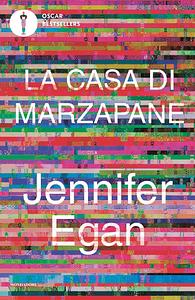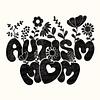You need to sign in or sign up before continuing.
Take a photo of a barcode or cover
challenging
mysterious
medium-paced
Plot or Character Driven:
A mix
Strong character development:
N/A
Loveable characters:
Complicated
Diverse cast of characters:
Yes
Flaws of characters a main focus:
Yes
challenging
mysterious
sad
medium-paced
Plot or Character Driven:
Character
Strong character development:
Complicated
Loveable characters:
No
Diverse cast of characters:
No
Flaws of characters a main focus:
Yes
this book made me uneasy. With its complex weavings of lives, characters, prose and technology. It was simultaneously dizzying, disorientating and thoughtful. Slightly depressing and vaguely simple in purpose. 3.5
I love creative books so I had high hopes when Own Your Unconscious was the common thread tying all of the short stories together. I had a hard time being invested in the plot amongst all of the short stories.
emotional
challenging
emotional
slow-paced
Plot or Character Driven:
A mix
Strong character development:
Complicated
Loveable characters:
Complicated
Diverse cast of characters:
Complicated
Flaws of characters a main focus:
Complicated
Incredibly written, exposing us readers to a wide array of writing styles, prose, stream-of-consciousness. A complex web on interconnection and human behavior. A story about stories. About lives and lived experiences.
Mehh. Nee. Misschien moet ik iets "normaals" gaan lezen. "A visit from the goonsquad" was ook al niet aan mij besteed. Egan en ik zijn gewoon geen match.
"Knowing everything is too much like knowing nothing. Without a story it is all just information."
This quote from the very last moments of The Candy House serves on its own as a pretty thorough review of the book and a pretty thorough summation of much of what is wrong in the world. Last night I was having drinks with a much younger friend (just a few years older than my son) and I said that I think one of the things that leads to so much unhappiness and lack of connection in the 30 and under crowd is the deluge of uncontextualized information. It is exhausting trying to assimilate even a fraction of the information that is thrown at us every day, and all that energy would be so much more satisfyingly spent analyzing a few facts that will tell us more about something that means something to us and to our lives, or simply enhances expertise or satisfies true intellectual curiosity rather than simply making us feel a bit less FOMO. A lot of this book is about that. About tapping into other people's lives and experiences as a substitute for creating our own lives (The device to do this in the book is currently a bit of science fiction, but the experience of people staring at the inane input of influencers day after day rather than having experiences is the same.)
"The Candy House" of which the book speaks is a reference to the witch's house in Hansel and Gretel. It is the shiny appealing bit of short term satisfaction that spurs us to enter its doors and sacrifice all. "Abandon hope all ye who enter here." And we do abandon hope, or more explicitly we abandon privacy, individuality and all sense of self all to get a little gingerbread (or convenience), a few empty calories. BUT Egan is no Ishiguro or Eggers, happy to share their fear of the hobgoblin of technology and have that be the end of the story. That is lazy. I got a headache from rolling my eyes when I attempted to read The Circle. Egan sees past this threat, she sees a way out, she sees that what matters is how we connect to one another and what we give and get from the ways in which se share our stories. Also she sees the advantages of committing our life to the public record. Others ignore that, but we need to get something to willingly give up so much, we need to get something we truly value in this exchange. It is a nuanced look, it is a smart look, it is a compellingly human look at what now and what next. It is also a really fun, sometimes heartbreaking, always fascinating story about people, and the ways in which imagination and intellect can be a very dangerous thing. Here, one of our fascinating main characters, Miranda Kline, uses her brilliance and the passionate interest in learning how people relate to one another to develop a theory of patterns of affinity. Another intriguing character, Bix, filled with nothing but goodwill and a great mind (informed by a love of literature) turns this theory into an algorithm and then into a method of uploading the contents of people's unconscious and conscious minds and to use that record in various ways including the creation of a "collective consciousness." No more memories spurred by a madeleine, now a literal record of memory as an immediate sense impression and as that impression is processed by the person. It is not an owned memory anymore, it belongs to everyone in the collective, everyone has access to everyone's experience. (Or at least the things that stay in memory -- presumably the burger I ate last night is not permanently stored and available for download.) It seems like the end of wonder, but as one of our characters, a numbers guy charged with turning human behavior into algorithms says, the act of codifying behavior "doesn't make human life any less remarkable, or even (this is counterintuitive, I know) less mysterious — any more than identifying the rhyme scheme in a poem devalues the poem itself." I think that is right. I hope that is right.
One note -- this is a companion to A Visit from the Goon Squad, a book I loved very much, but there is no need to read Goon Squad to get this. Many of the characters that showed up in Goon Squad, some very briefly, show up here, but there is plenty of set up for each character and if I recall correctly Goon Squad doesn't provide backstory that would be helpful to understanding this book. It is just as creative and revelatory and captivating and delightful as Goon Squad but still absolutely its own book.
This quote from the very last moments of The Candy House serves on its own as a pretty thorough review of the book and a pretty thorough summation of much of what is wrong in the world. Last night I was having drinks with a much younger friend (just a few years older than my son) and I said that I think one of the things that leads to so much unhappiness and lack of connection in the 30 and under crowd is the deluge of uncontextualized information. It is exhausting trying to assimilate even a fraction of the information that is thrown at us every day, and all that energy would be so much more satisfyingly spent analyzing a few facts that will tell us more about something that means something to us and to our lives, or simply enhances expertise or satisfies true intellectual curiosity rather than simply making us feel a bit less FOMO. A lot of this book is about that. About tapping into other people's lives and experiences as a substitute for creating our own lives (The device to do this in the book is currently a bit of science fiction, but the experience of people staring at the inane input of influencers day after day rather than having experiences is the same.)
"The Candy House" of which the book speaks is a reference to the witch's house in Hansel and Gretel. It is the shiny appealing bit of short term satisfaction that spurs us to enter its doors and sacrifice all. "Abandon hope all ye who enter here." And we do abandon hope, or more explicitly we abandon privacy, individuality and all sense of self all to get a little gingerbread (or convenience), a few empty calories. BUT Egan is no Ishiguro or Eggers, happy to share their fear of the hobgoblin of technology and have that be the end of the story. That is lazy. I got a headache from rolling my eyes when I attempted to read The Circle. Egan sees past this threat, she sees a way out, she sees that what matters is how we connect to one another and what we give and get from the ways in which se share our stories. Also she sees the advantages of committing our life to the public record. Others ignore that, but we need to get something to willingly give up so much, we need to get something we truly value in this exchange. It is a nuanced look, it is a smart look, it is a compellingly human look at what now and what next. It is also a really fun, sometimes heartbreaking, always fascinating story about people, and the ways in which imagination and intellect can be a very dangerous thing. Here, one of our fascinating main characters, Miranda Kline, uses her brilliance and the passionate interest in learning how people relate to one another to develop a theory of patterns of affinity. Another intriguing character, Bix, filled with nothing but goodwill and a great mind (informed by a love of literature) turns this theory into an algorithm and then into a method of uploading the contents of people's unconscious and conscious minds and to use that record in various ways including the creation of a "collective consciousness." No more memories spurred by a madeleine, now a literal record of memory as an immediate sense impression and as that impression is processed by the person. It is not an owned memory anymore, it belongs to everyone in the collective, everyone has access to everyone's experience. (Or at least the things that stay in memory -- presumably the burger I ate last night is not permanently stored and available for download.) It seems like the end of wonder, but as one of our characters, a numbers guy charged with turning human behavior into algorithms says, the act of codifying behavior "doesn't make human life any less remarkable, or even (this is counterintuitive, I know) less mysterious — any more than identifying the rhyme scheme in a poem devalues the poem itself." I think that is right. I hope that is right.
One note -- this is a companion to A Visit from the Goon Squad, a book I loved very much, but there is no need to read Goon Squad to get this. Many of the characters that showed up in Goon Squad, some very briefly, show up here, but there is plenty of set up for each character and if I recall correctly Goon Squad doesn't provide backstory that would be helpful to understanding this book. It is just as creative and revelatory and captivating and delightful as Goon Squad but still absolutely its own book.
challenging
reflective
medium-paced
Plot or Character Driven:
Character
Strong character development:
No
Loveable characters:
Complicated
Diverse cast of characters:
Yes
Flaws of characters a main focus:
Complicated





